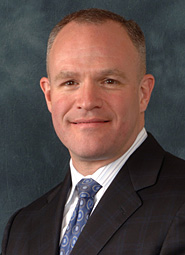Three UC Berkeley, faculty members whose innovations have launched new startups and whole new areas of research have been named fellows of the National Academy of Inventors.
The new fellows — biochemist Jennifer Doudna, chemical engineer Jay Keasling and chemist Richard Mathies — were among 170 new fellows announced today (Dec. 16). They will be inducted on Mar. 20, 2015, as part of the fourth annual conference of the National Academy of Inventors at the California Institute of Technology in Pasadena, where they will be presented with a special trophy, newly designed medal and rosette pin in honor of their outstanding accomplishments.
Election as an NAI fellow is “a high professional distinction accorded to academic inventors who have demonstrated a prolific spirit of innovation in creating or facilitating outstanding inventions that have made a tangible impact on quality of life, economic development, and the welfare of society,” according to the academy’s announcement.
NAI fellows are named inventors on U.S. patents and were nominated by their peers for outstanding contributions to innovation in areas such as patents and licensing, innovative discovery and technology, significant impact on society, and support and enhancement of innovation.
Doudna, a professor of molecular and cell biology in the California Institute for Quantitative Biosciences (QB3) and an investigator in the Howard Hughes Medical Institute at Berkeley, co-invented a precision DNA editing technique that has revolutionized genetic research and gene therapy. Called CRISPR/Cas9, it is already the basis of several startups, including Caribou Biosciences Inc., co-founded by Doudna. Her research has produced dozens of U.S. and foreign patent applications and patents. She is also director of the Innovative Genomics Initiative, a new hub of exploration at Berkeley that conducts research in genome engineering using the CRISPR/Cas9 system.
Keasling is the Hubbard Howe Jr. Distinguished Professor of Biochemical Engineering, associate laboratory director at Lawrence Berkeley National Laboratory, director of UC Berkeley’s Synthetic Biology Engineering Research Center (SynBERC) and CEO of the Joint BioEnergy Institute (JBEI) in Emeryville,. A pioneer in synthetic biology, his inventions resulted in engineered microbes to produce the world’s first low-cost antimalarial drug. A holder of 32 U.S. patents, his patent rights have catalyzed the commercial development of products in other fields, including specialty chemicals such as emollients, lubricants and biofuels. He is co-founder of Amyris Biotechnologies, LS9, Lygos and Codon Devices.
Mathies, professor and former dean of the College of Chemistry, is a scientist-entrepreneur who holds more than 43 U.S. patents and scores of corresponding foreign patents. He was a pioneer in rapid DNA sequencing using capillary arrays and lab-on-a chip fabrication, and has served as consultant to some 15 small, medium and large companies. Income from royalties on his patents has gone into new programs for graduate students, research infrastructure improvements, benefits to faculty members and services for undergraduates. His first patents on confocal scanning were licensed to Molecular Dynamics in 1994 and were the first such licensing in the UC system to accept equity in a startup company.
UC Berkeley is one of California’s major drivers of innovation and is one of five universities that founded two-thirds of all biotechnology companies in California. Campus research has spawned more than 150 startups to commercialize intellectual property licensed from the campus, and these licensees have commercialized more than 100 products, with dozens more in the pipeline.
The National Academy of Inventors, founded in 2010 to recognize and encourage inventors with patents issued from the U.S. Patent and Trademark Office, is a nonprofit organization with over 3,000 individual inventor members and fellows from U.S. and international universities and governmental and nonprofit research institutions. The new fellows bring the total number of NAI Fellows to 414, representing more than 150 prestigious research universities and governmental and nonprofit research institutions.
RELATED INFORMATION



